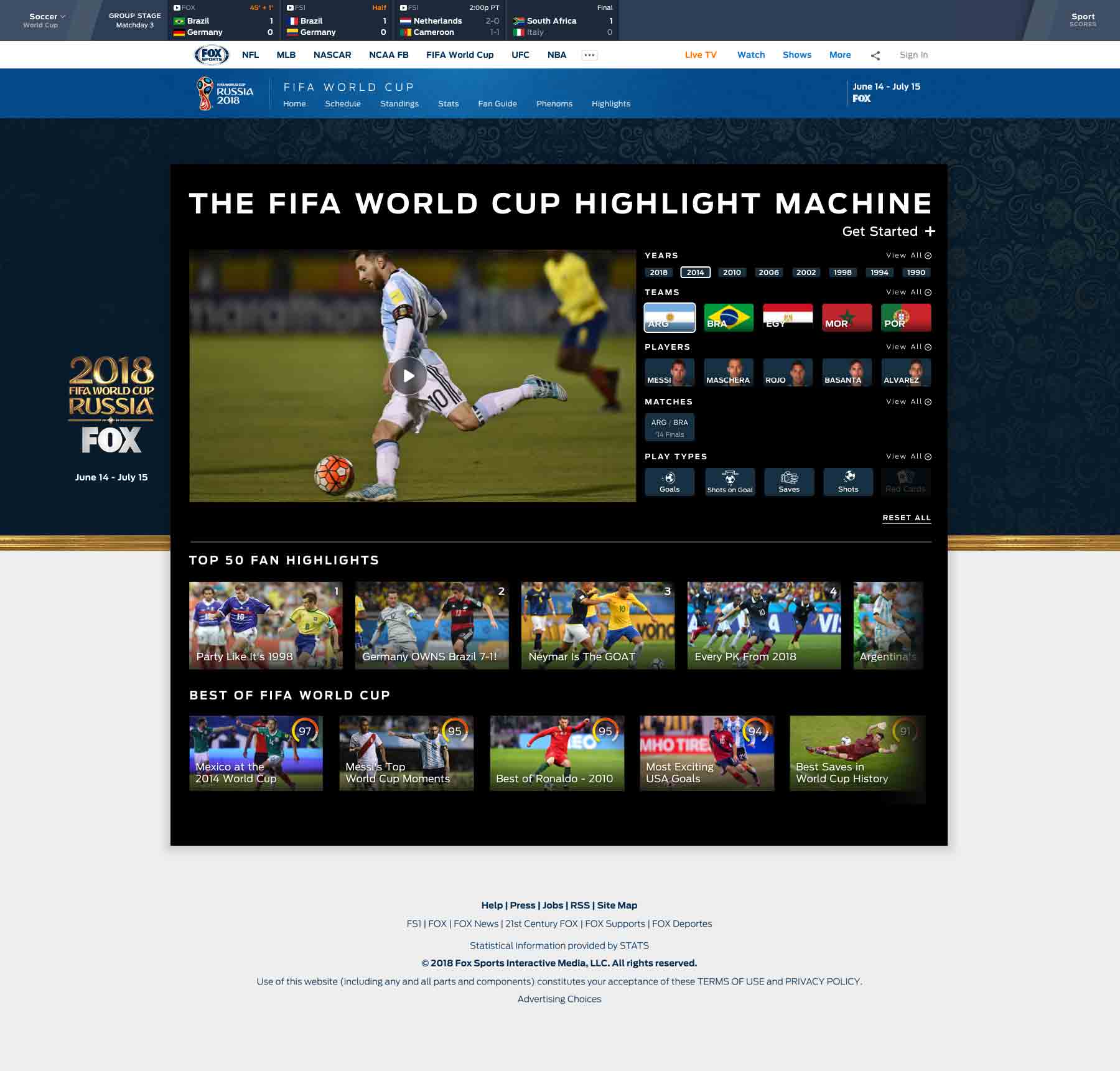World Cup 2018 Sets Stage for Video Tech Showcase

The smarter way to stay on top of broadcasting and cable industry. Sign up below
You are now subscribed
Your newsletter sign-up was successful
Why This Matters: New tech will help make the FIFA World Cup even more popular in the U.S., regardless of who’s playing.
The U.S. won’t have a team in the hunt at the 2018 FIFA World Cup in Russia, but the nation’s TV programmers and distributors will have an active role and use the big soccer tourney to showcase a wide range of new and advanced video technologies.
Heading into the tournament’s kickoff this Thursday (June 14), some of those new (or relatively new) video elements will include artificial intelligence-assisted editing, games in 4K resolution and High Dynamic Range, streaming of all matches to a wide range of connected devices and the use of virtual reality (VR).
Related: Comcast’s X1 Kicks in a Content Hub
Among the bigger advancements on show, Fox Sports is teaming with IBM Watson Media’s AI video technology for the Highlight Machine, billed as a personal, interactive experience that will let soccer fans rapidly create their own video highlight reels of match highlights by team or players, tournament goals, or even a mix that includes video from this year’s World Cup or past tourneys.
Using IBM’s AI tech, the Highlight Machine can be used to streamline and automate the production workflows needed to classify, access and edit the desired content into highlight reels in “near” real time.
AI is essentially the editor, with access to an archive of games to be played at the 2018 World Cup and some 300 matches from 1958-2014, including every final, most knockout matches and epic upsets.
The smarter way to stay on top of broadcasting and cable industry. Sign up below
“Nothing like this has ever been done,” David Feldstein, vice president of product management at Fox Sports, proclaimed.
Prime Players at Prime Times
Offered for free on the Fox Sports site or mobile app, the Highlight Machine, he said, would take an event with the history and deep narratives of the World Cup and create “stories” about it but in a way that is in the control of the viewer. A visitor, for example, could program the system to go back in time to highlight the World Cup career of Pelé of Brazil, Argentina’s Diego Maradona or Germany’s Franz Beckenbauer and generate a dynamically curated view of their play when those soccer greats were in their primes.
“It’s really limited by your own creativity … There’s a lot of depth to explore,” Feldstein said, noting that the concept behind the Highlight Machine, which has nabbed Adidas as a sponsor, has been years in the making.
The Highlight Machine will also allow users to share their creations by distributing their digital reels via email, text, Twitter and Facebook.
Fox Sports will again team with LiveLike on a social virtual reality offering that features a digital suite and the ability for a handful of fans to come together to view from three multi-angle feeds in each match and discuss the game.
Fox Sports is offering the 360-degree component via the web and mobile app (users can navigate with their mouse if they’re using a PC or swipe on tablets and smartphones). Or they can enter a more immersive environment via supported VR headsets/platforms from Samsung Gear VR, Google Daydream and even the Oculus Go, the new standalone VR headset from the Facebook-owned company.
Fox Sports and LiveLike have teamed up on some one-off events such as the Super Bowl, but the sustained activity and number of matches tied to the World Cup will offer a new opportunity to get more viewers exposed to VR.
“This is something that viewers can expect every day for the duration of the tournament,” Michael Davies, senior VP of field and technical operations at Fox Sports, said.
Though the technology (given its slow evolution) has not taken a grip on the consumer masses, the work around World Cup 2018 could serve as “another benchmark for VR,” Davies predicted.
Elsewhere on the digital front, Fox Sports will offer the FIFA World Cup Hub, set to provide live streams and full replays of the tournament’s 64 matches, as well as access to bonus feeds (including “team channels”), commentary, rosters, stats and highlights.
World Cup host broadcaster HBS plans to produce matches in 4K. Among the TV production stats, HBS will employ 37 manned cameras to cover each game, eight cameras with Super Motion, two touchline Steadicams, two behind-the-goal cranes and two in-goal cameras, two ultra-mini, high-frame-rate pole cams behind each goal and more than 80 microphones around the pitch.
